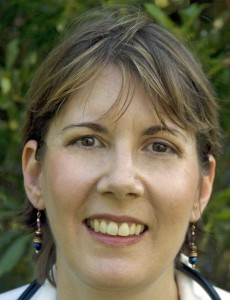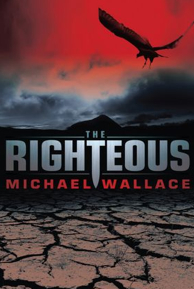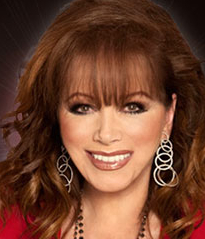
In today’s Publetariat Dispatch, author and publishing consultant Joanna Penn discusses how an author can use both mainstream, traditional publishing and self-publishing strategically.
I’m getting a little weary of the hype that seems to suggest authors must either choose traditional or self-publishing, and that in no way could the two ever come together.
I also don’t like the polemic that has set authors against each other depending on how they choose to publish. I know this is an emotional topic and people have many different experiences of publishing in its myriad forms, but I wanted to put my thoughts out there and also see what you are thinking on the topic.
The choice of how to publish must be made per book.
I believe in the empowerment of the author to choose what is right for their book, and their business.
I also believe in the empowerment of the publisher to choose what is right for their business.
Some books are commercial enough that a publisher will pick it up because they believe it can make money for them. Some publishers may publish books because of love, not money but the bills still have to be paid.
Of course there are lots of great books that didn’t get picked up by the industry and many authors who feel disempowered by this rejection. Some authors have had bad experiences and have a justified grudge. But some books are just not right for traditional publishers at the time they were queried. The brilliant thing these days is that those books can be independently published by the author and do fantastically well. The author is empowered to publish.
But that doesn’t mean people should stop querying or aiming for a traditional deal if they want to.
I was on a panel on Radio Litopia the other night, discussing the London Book Fair and the launch of the Alliance of Independent Authors. In the chat room, it was suggested that all successful indies just wanted a book deal, and if they took it, they were somehow crossing a line. That they were betraying the indie ideal and proving that the establishment is all anybody wants.
But this clearly isn’t true either. There are successful indies accepting book deals, but they are plenty of authors leaving traditional to go indie, but who are not getting reported on.
So I think authors need to be empowered to consider their choices per book.
Is this book something a traditional publisher might be interested in? Is this book something I want to relinquish control of? Is this a project I prefer to have creative direction on?
Because most authors write more than one book.
Let’s face it. There’s so much creativity in all of us, and we have years of creation and publication ahead.
I am currently writing my 3rd novel in the ARKANE series, Exodus, and I have ideas for several stand-alone as well as more in this series. My current fiction is probably commercial enough for the traditional market, so I may decide to query it, although I am very happy with my indie sales so far.
I am also working on a re-release of my non-fiction book, How To Love Your Job…Or Get A New One (out in May). There is no way I would query that. Firstly because it is from my heart and the book I needed to write four years ago to change my life. The rewrite contains everything I have learned since then. Also, it’s not commercial enough for them and so wouldn’t be worth it. I believe in the book but I definitely want it to be published on my terms.
Lots of books written means lots of choice.
There are authors already managing the hybrid model.
Joe Konrath is always talked about as an example. He has books with Amazon’s Thomas & Mercer as well as his own indie books. Barry Eisler is another famous example, but I’d like to call out several other great authors who are rocking the hybrid model.
 CJ Lyons has 16 novels and over the years has been with four different publishers for various books but after looking at her options, she decided to publish some books independently including some from her back-list that she had the rights back for. In September 2011 she hit the New York Times bestseller list with an indie book, Blind Faith, which was then sold to Minotaur. However, she continues to publish indie books, including recent success Bloodstained, currently rocking the Kindle charts at #60 overall as I write. [If you want to learn from CJ, check out these courses.]
CJ Lyons has 16 novels and over the years has been with four different publishers for various books but after looking at her options, she decided to publish some books independently including some from her back-list that she had the rights back for. In September 2011 she hit the New York Times bestseller list with an indie book, Blind Faith, which was then sold to Minotaur. However, she continues to publish indie books, including recent success Bloodstained, currently rocking the Kindle charts at #60 overall as I write. [If you want to learn from CJ, check out these courses.]
 Michael Wallace signed with Amazon’s Thomas & Mercer imprint in a 5 book deal for his awesome suspense thrillers set in a polygamist enclave. But he also has 8 more books that he has independently published. Michael writes about the importance of persistence in this article.
Michael Wallace signed with Amazon’s Thomas & Mercer imprint in a 5 book deal for his awesome suspense thrillers set in a polygamist enclave. But he also has 8 more books that he has independently published. Michael writes about the importance of persistence in this article.
Recent news has Boyd Morrison dropped by his publisher in the US, but who still has traditional deals in other markets. So he will be in perhaps the unique position of publishing his next book independently in the US, but traditionally everywhere else. Now that is really the hybrid model!
 As I was about to post this, uber-author Jackie Collins wrote a blog post about her decision to self-publish. Clearly she has a a lot of books with traditional publishing but in this case she says “you’ve always got to be thinking two steps ahead of the game.” There are a lot of great nuggets for authors in that post. Definitely go read it.
As I was about to post this, uber-author Jackie Collins wrote a blog post about her decision to self-publish. Clearly she has a a lot of books with traditional publishing but in this case she says “you’ve always got to be thinking two steps ahead of the game.” There are a lot of great nuggets for authors in that post. Definitely go read it.
This is actually the model I would like to have. Some books with traditional publishers and others indie published. Isn’t that the best of both worlds?
I am more aware of thriller authors, since this is the genre I read and write in, but perhaps you have other examples of hybrid authors – or perhaps you are one. I’d love to know your thoughts on this, so please do leave a comment [on the original post].
This is a reprint from Joanna Penn‘s The Creative Penn.